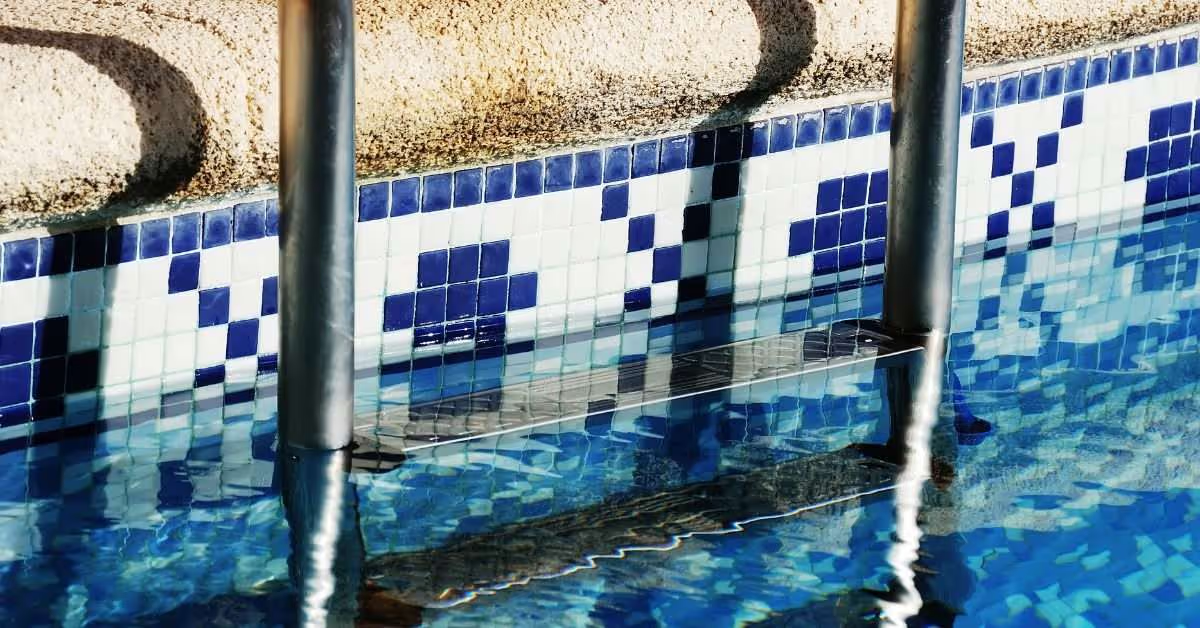Pests Paddling in Your Pool?

If you own a pool, you might find that your friend group suddenly surges come summertime. Everyone wants an invite to cool off poolside during the dog days of summer. But, what about those guests you never invited in the first place?Some pests love pools as much as people. The trouble is their presence -- whether alive or not -- can threaten human health. That's why it's important to be aware of various pest threats and, most importantly, how to prevent them from entering your pool.
What Types of Pests Like Pools?
Pools attract all sorts of pests in various shapes and sizes. Some, like certain insects and common swimming pool bugs, are harder to keep out but don't pose a threat to humans like larger pests.While there are plenty of things you can do to prevent generally harmless water bugs, like the water boatman and backswimmer, from entering your pool, it's unlikely you'll ever be completely rid of them. While a few of these culprits here and there aren't worth stressing over, the presence of other pests requires swift action and a solid prevention plan.
The Rundown on Rodents
Researchers at University of California Berkeley classify the following animals as Rodentia: mice, rats, hamsters, guinea pigs, beavers, muskrats, porcupines, woodchucks, chipmunks, squirrels, prairie dogs, marmots, chinchillas, voles, lemmings, and many others. While none of these pests are ones you want taking a dip in your pool, the ones most pool owners need to worry about are mice and rats.The trouble with these rodents comes down to biology, specifically, rapid reproduction. Two breeding rats, which are sexually mature by 4-5 weeks of age, can produce an average of approximately 1,200 pups in a single year.A single rat in your pool will not be the last you encounter, unless you take some proactive steps to ensure that it is.
Why are Pests Attracted to Pools in the First Place?
As we all know, hot days require hydration and the same holds true for mice and rats. Mice and rats are attracted to your pool as a source of drinking water. If you happen to find a rodent in your pool, chalk it up to a sip n' slip. Typically, pests in your pool got there as a result of slipping while sipping. Although some rats can swim more than a mile in open water and, if need be, will tread water for as long as three days, once they fall into your pool, it's difficult, if not impossible, for them to crawl back out.If you do encounter a dead mouse or rat in your pool, don't panic. The fact is, in most cases, the chlorine in your pool will kill any bacteria, like salmonella or e.coli, that the rat potentially introduced into the water when it first fell in. However, some parasites can survive chlorination, so you'll want to follow some simple sanitation steps.
How Do I Deal with a Dead Mouse or Rat in My Pool?
The Centers for Disease Control (CDC) recommends steps similar to the following for retrieving a dead rodent from your pool:
- Blow the whistle on swimming and get all swimmers out of the pool.
- Pull on a pair of disposable gloves and use a pool net or pail to remove the carcass.
- Place the carcass in a garbage bag and drop that bag inside another one for extra protection and odor control.
- That net or pail you used to retrieve the rat? Sterilize it with a cleaning solution and toss your gloves into the garbage.
- Place the bag, gloves, and any other cleaning materials into a trash bin with a well-fitted lid.
- Wash those hands with hot, soapy water!
- Increase or maintain the free chlorine concentration to 2 parts per million (ppm); ensure the pH levels read 7.5 or less; stabilize the temperature at a minimum of 77�F (25�C). Keep the chlorine and pH at these levels for at least 30 minutes.
- Make sure your pool's filtration system is functioning correctly.
Now that you've experienced the skin-crawling sight of a floating rodent in your pool, along with the hassle of cleanup, post retrieval, you're probably anxious to know how to ensure that any remains your one and only (sunk) swimmer.
Poolside Pest Prevention
To start with, keep in mind that cleanliness is key. Take a good look at the area around your pool and do some straightening up. That means removing any trash, spilled drinks or sticky messes on patio furniture surfaces. Store pool toys and floats in a large, lidded bin. You don't want to discover a rat playing peekaboo from inside a pool noodle.Try to imagine other places where rats and other rodents might hide or seek shelter.If you stack wood in the winter time and still have a few logs leftover, you'll want to make sure they're kept away from the pool area. Even sheds can be an attractive shelter for rodents. However possible, keep structures like these pushed back from the perimeter of the pool.Landscaping will also get you some leverage against rats. Make sure that plants, trees, bushes, and shrubs are trimmed and tidy. Prune back any overgrowth and keep the lawn near your pool closely mowed. (This helps cut down on other pest populations like insects and mosquitoes, too).When it's not in use, keep your pool covered, especially at night. If covering your pool each evening feels like a hassle, at the very least, ensure that the pool lights are turned off, which will also keep flying insects and other light-seeking pests away.
A Pool Pest PSA: Raccoons
As unpleasant as discovering a rodent in your pool surely is, there are far worse pests to deal with, which is why, in fact, you shouldn't. For example, raccoons. If you encounter a raccoon or raccoon feces in your pool, it's best to contact a pest control professional for safe and expert wildlife removal.Although chlorine will take care of most bacteria and parasites introduced into your pool by a wild animal (alive or not), raccoons, specifically raccoon feces, can carry the eggs of a worm called Baylisascaris procyonis. This roundworm parasite poses a serious risk to human health; children, in particular, are at risk of suffering a neurological illness following exposure.Whether it's pests in the pool or some other pest-related issue plaguing your property, don't go it alone. The Pest-End team is standing by to field your calls, answer your questions, and offer expert solutions.



